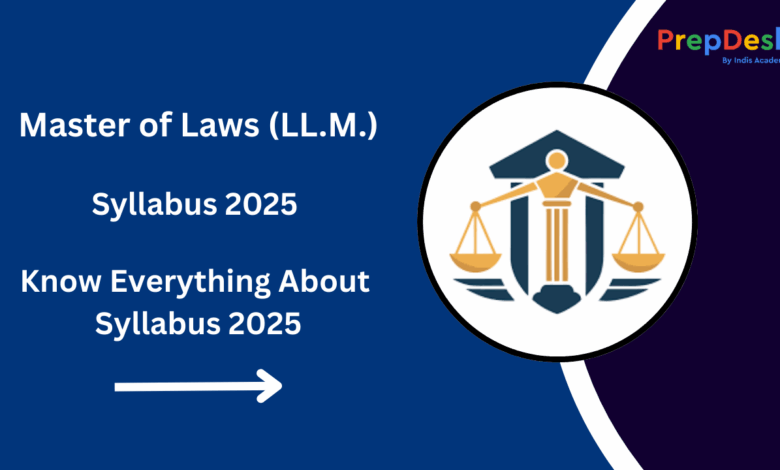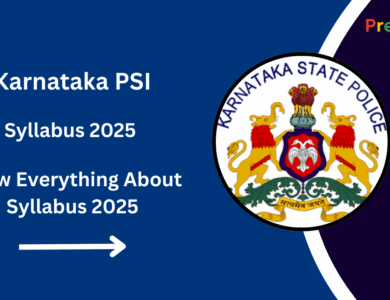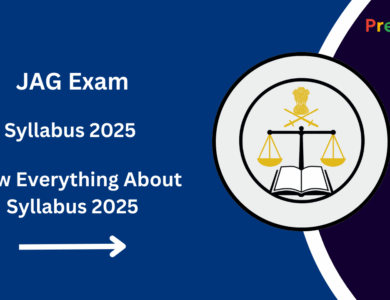LLM Syllabus 2025 – Semester-Wise Subjects, Core Papers, Dissertation & Career Guide
Discover the full LL.M. Syllabus 2025 with detailed semester-wise subjects, core papers, electives, research methodology, dissertation guidelines, recommended books, expert preparation tips, and top career opportunities in law.

The Master of Laws (LL.M.) is a prestigious postgraduate program designed for law graduates who wish to advance their knowledge, specialize in a specific area of law, and gain a deeper understanding of legal principles, procedures, and contemporary issues. The LL.M. is not just an academic degree but a professional credential that opens doors to opportunities in academia, research, judiciary, corporate legal departments, public policy, and international organizations.
In 2025, the LL.M. syllabus has evolved to meet the demands of a fast-changing legal environment, incorporating contemporary topics like technology law, environmental law, and global trade regulations while maintaining a strong foundation in classical legal studies. This guide provides the complete semester-wise breakdown, subject details, assessment structure, recommended books, preparation strategies, and career prospects, making it an essential resource for anyone pursuing or planning to pursue the LL.M. program.
Exam Overview
| Feature | Details |
|---|---|
| Course Level | Postgraduate (LL.M.) |
| Duration | 1 Year (2 Semesters) or 2 Years (4 Semesters) |
| Eligibility | LL.B. or equivalent degree in law |
| Mode | Full-time, Part-time, or Online |
| Assessment | Exams, Assignments, Viva, and Dissertation |
| Specializations | Public Law, Criminal Law, Corporate Law, International Law, Intellectual Property, Environmental Law, etc. |
Semester-Wise LL.M. Syllabus
Semester 1
The first semester focuses on developing strong legal research skills, introducing core specialization subjects, and encouraging cross-disciplinary learning through electives. This stage lays the foundation for advanced study in the second semester.
| Subject Name | Description | Credits / Marks |
|---|---|---|
| Research Methodology | Covers qualitative and quantitative legal research techniques, case analysis, and citation formats such as Bluebook and OSCOLA. | 100 |
| Concentration Core Paper 1 | A primary subject from the chosen specialization (e.g., Constitutional Law, Criminal Law, or Corporate Law). | 100 |
| Elective Paper 1 | An elective chosen from fields such as International Law, Environmental Law, or Human Rights Law. | 100 |
| Elective Paper 2 | Another elective to expand interdisciplinary knowledge and analytical skills. | 100 |
Semester 2
The second semester emphasizes comparative studies, deeper specialization, and research. The dissertation is introduced here in one-year LL.M. programs.
| Subject Name | Description | Credits / Marks |
|---|---|---|
| Comparative Public Law / International Legal Systems | Comparative analysis of constitutional frameworks, governance structures, and judicial systems across nations. | 100 |
| Concentration Core Paper 2 | An advanced-level subject deepening specialization knowledge. | 100 |
| Elective Paper 3 | Specialized elective outside the primary concentration to encourage wider legal perspective. | 100 |
| Dissertation / Thesis | Original research work on a chosen legal topic, defended before an academic panel. | 200 |
Semester 3
This semester is designed for students in the extended two-year LL.M. course, with a focus on advanced research and specialization papers.
| Subject Name | Description | Credits / Marks |
|---|---|---|
| Advanced Legal Research | In-depth study of doctrinal, comparative, and socio-legal research methods. | 100 |
| Specialization Elective 1 | Elective within chosen concentration area (e.g., Corporate Governance, Criminal Justice). | 100 |
| Specialization Elective 2 | Further specialized paper to strengthen domain expertise. | 100 |
| General Elective | Interdisciplinary course to broaden understanding beyond the main field. | 100 |
Semester 4
The final semester focuses on capstone research and presentation of the dissertation, along with final specialization papers.
| Subject Name | Description | Credits / Marks |
|---|---|---|
| Specialization Core Paper 3 | Final specialization paper involving high-level case study and research. | 100 |
| General Elective 2 | Elective from outside the specialization to ensure broad-based learning. | 100 |
| Dissertation / Capstone Project | Comprehensive research document with a defense presentation. | 200 |
Marks & Assessment Pattern
The LL.M. program uses a combination of internal assessment and final examinations to evaluate students.
| Component | Weightage |
|---|---|
| Mid-Semester Exam | 20% |
| End-Semester Exam | 40% |
| Assignments & Presentations | 20% |
| Attendance & Class Participation | 10% |
| Dissertation / Viva Voce | 10% |
Recommended Books for LL.M. 2025
Below is a list of some of the most widely used and highly recommended books for LL.M. students in India:
| Subject Area | Recommended Books |
|---|---|
| Research Methodology | Legal Research Methodology by Dr. S.R. Myneni |
| Constitutional Law | Indian Constitutional Law by M.P. Jain |
| Criminal Law | Indian Penal Code by Ratanlal & Dhirajlal |
| Corporate Law | Company Law by Avtar Singh |
| International Law | International Law by Malcolm N. Shaw |
| Environmental Law | Environmental Law in India by Shyam Divan |
Preparation Strategy for LL.M.
- Select your specialization early and align it with your career goals.
- Read and analyze landmark judgments relevant to your field.
- Improve research and legal writing skills to excel in assignments and dissertations.
- Follow recent legal developments in India and internationally.
- Participate in moot courts, seminars, and legal workshops for practical exposure.
Popular Specializations in LL.M.
- Public Law
- Criminal Law
- Corporate & Commercial Law
- Intellectual Property Rights
- International Trade Law
- Environmental Law
- Human Rights Law
Career Opportunities After LL.M.
An LL.M. degree significantly improves your career prospects. Graduates can work in academia, litigation, judiciary, corporate law, policy advisory, and with international organizations such as the United Nations and World Trade Organization.
| Career Path | Roles |
|---|---|
| Academia | Law Professor, Research Scholar |
| Judiciary | Judge, Magistrate |
| Corporate Sector | Legal Advisor, Corporate Lawyer |
| International Organisations | Legal Consultant, Policy Analyst |
| Litigation | Senior Advocate, Legal Practitioner |
Conclusion
The LL.M. Syllabus 2025 offers a perfect blend of theoretical foundations, practical learning, and research opportunities. Whether you choose a one-year or two-year program, the course is designed to equip you with advanced legal knowledge and professional skills to excel in your chosen field.
FAQs
Q1: What is the duration of LL.M. in India?
A: 1 year (2 semesters) as per UGC guidelines; some universities still offer 2-year programs.
Q2: Is LL.M. mandatory for teaching law?
A: Yes, LL.M. is required to become an Assistant Professor in law colleges in India.
Q3: Which entrance exams are required for LL.M.?
A: CLAT PG, AILET PG, CUET PG, ILI CAT, DU LLM.
Q4: Can LL.M. be pursued online?
A: Yes, several universities offer online LL.M. programs.
Q5: Does LL.M. include internships?
A: While not compulsory, many universities encourage internships for practical exposure.





